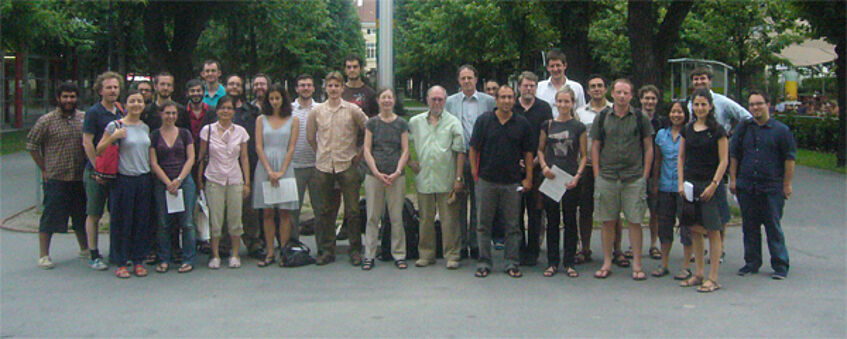USS-SWC 2009 – The Culture of Science and Its Philosophy
The 9th Vienna Summer University was held on July 13–24, 2009.
Lecturers
- Ronald Giere (University of Minnesota, USA)
- Mary Jo Nye (Oregon State University, USA)
- Alan Richardson (University of British Columbia, Canada)
With the rise of specialized sciences, understood to be autonomous from philosophy, and the rise of philosophical positivism, philosophers and scientists debated among themselves claims for objectivity, realism, and truth in the sciences. They discussed, too, the roles that scientists and scientific knowledge justifiably play in political systems, social policy, and technological development. As secularism strengthened and religious metaphysics waned, philosophers also began to concern themselves with the scientific standing of philosophy itself. Arguably, the debates about the scientific status of philosophy became the most crucial debates in the historical framing of twentieth-century philosophy. At this same time, however, the specialist sciences increasingly faced challenges to their traditional claims to universal knowledge.
There are three main overlapping themes in the course. One theme concerns crucial aspects of philosophical debates from roughly 1870 to 1950, the alternatives offered, and some lingering consequences for analytic philosophy that arise from its historical relations to scientific philosophy. A second theme concerns the possible replacement of the Enlightenment idea that science delivers the absolutely objective truth by the view that scientific knowledge is perspectival, and the consequences of this view for how contemporary scientists confront religion. A third theme concerns twentieth-century scientists and philosophers of science who sought to sort out questions of the social responsibilities of science, the social dimensions of science, and the truth of scientific claims.
Topics
- Scientific Perspectivism: An Alternative to Objectivist Realism
- Scientific Neo-Kantianism and Positivism in Germany from 1870 to 1914
- Naturalism, Pragmatism, and Experimentalism in American Philosophy of Science, 1870–1950
- Scientific Realism and Scientific Socialism in France from Belle Epoque to Cold War
- Bernalism and Approaches to the History and Philosophy of Science in Great Britain
- Hierarchy and Intention in Scientific Representation
- “Die wissenschaftliche Weltauffassung”: Logical Positivism from Austria and Germany to North America, 1920–1950
- Weimar Berlin and Historical Sources of the View of Science as Social Practice
- Politics and Values in the Philosophy of Science of Polanyi, Popper, and Kuhn
- Science without Laws, Realism without Truth, Judgment without Rationality
- Analytic Philosophy as Marginal Science
- Contemporary Scientists Confront Religion
